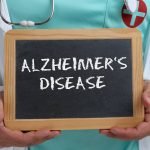If you’re in the over-40 camp, you might have noticed some annoying changes in your mental functioning as the years have progressed. Perhaps you’ve re-rented the same video several times because the title didn’t sound familiar. Or maybe you’ve forgotten your car keys twice in one week, or forgotten the name of your neighbor’s dog. Given the statistics indicating that a fair share of older adults suffer from mental decline, you might fear that it’s time to put yourself out to pasture. If so, here’s some heartening news.
According to an article in the New York Times, a new book entitled Progress in Brain Research indicates that the brain actually becomes more powerful in certain ways as we age, although our mental capacity shifts to emphasize new abilities. The book cites numerous studies that show that while aging brains might not retain facts as well as young minds, the mature brain takes in more data and can put that data to more creative use.
“Much of what occurs is a gradually widening focus of attention that makes it more difficult to latch onto just one fact, like a name or a telephone number,” the article says. But it goes on to assert that the broad focus of attention offers compensatory abilities, such as the ability to make wise choices based on a wider scope of information.
Among the studies cited are several in which subjects reviewed text containing unfamiliar words. Apparently, the younger subjects zipped through without bothering to try to figure out the meaning. Older readers, on the other hand, slowed down to decipher the significance. The older adults subsequently performed much better than the younger ones on tests in which the unfamiliar words might be the answers.
Lynn Hasher, a professor of psychology at the University of Toronto, says, “…for older adults, because they’ve retained all this extra data, they’re now suddenly the better problem solvers. They can transfer the information they’ve soaked up from one situation to another.”
Of course, not everyone share’s Dr. Hasher’s interpretation of the data. Or to put it into more colloquial terms, “One person’s meat is another person’s poison.”
A 2005 study out of the University of California in Berkeley concluded that memory loss among the elderly results not from an inability to concentrate on relevant information, but more from an inability to filter out information as it assaults the senses. The study used magnetic resonance imaging to discover that older adults couldn’t block out distractions as well as younger people, and so they encountered interference in focusing on every day tasks like reading, driving, and interacting with others. Dr. Adam Gazzaley, who co-authored the study, summed up the findings by saying, “These data suggest that older individuals are able to focus on pertinent information, but are overwhelmed by interference from failing to ignore distracting information, resulting in memory impairment.”
Note that Gazzaley and his fellow scientists used the study results to emphasize the negative consequences resulting from the older brain’s predilection to taking in a broad swath of data, whereas Progress in Brain Research takes the same information and gives it a very different spin. In fact the new book concludes that aging brains demonstrate more capacity for wisdom and creativity than younger brains.
Research supports the claim that distractibility, such as that demonstrated by the elderly, goes hand-in-hand with creativity. A 2003 study at Harvard University found that the students who were the most creative also had the most trouble ignoring superfluous data. According to the Times article, “The more creative the students were thought to be, determined by a questionnaire on past achievements, the more trouble they had ignoring the unwanted data. A reduced ability to filter and set priorities, the scientists concluded, could contribute to original thinking.” The researchers in that case assumed that the link between creativity and vulnerability to distraction resulted from reduced activity in the prefrontal cortex, and apparently, they believe this condition applies to aging brains.
What’s clear is that while short-term memory may diminish with age, it’s not all bad news for the codgers among us, and for the first time, someone has decided to see the cognitive-functioning glass as half full. It’s a good lesson in how perspective makes all the difference. Older adults may in fact manifest more creative problem-solving ability than younger people, and the attribution of wisdom to the elderly may have a basis in fact. And the even better news is that older people can improve memory function by following the Baseline of Health Program, without diminishing their creativity and wisdom — although no supplement yet exists to help the young and frivolous become wise.
:hc












well, that sounds better.
I know, maturity is a golden nugget.
the younger ones seem to think they have a handle on everything.
yes, I find I take the time to research and not rush into decisions like I did in years past.
age anyway is just a number and the body just a disquise.
What a great understanding of
What a great understanding of the aging brain! It explains so much to me why brain abilities vary over time.
Thank you so much!
Doug Warnat
As this study pointed out,
As this study pointed out, the 2 studies came at the same type of facts but from a different “view-point perspective”. When I went to lawschool at age 50, I was puzzled at first at some of the abilities of the younger folk to hone in on some fact areas, or to seem to have a deeper base of knowledge on facts of certain types. I took this as my “gaps” in knowledge at first but later figured out, especially after discussion with a few other older students, that it was because we could see all sorts of potentially relevant “side-issues” to throw into any analysis of facts, based on our broader experience base. Thus, we had not been limited just by whatever the educational system had offered up to law school, but a lot of “on the job” perceptions of people, what made certain people tick, what different legal “systems” did or didn’t do, the failures and successes .. in action. Alarm bells could go off in our brains more easily than in the more naive youngsters who ONLY had to learn the broad laws of 1 state and the federal as they were taught.
I would also like to thrown in some other “facts” for consideration in this, namely the “reticular filtering system” of human beings and how its proper nutrition or nutritional deprivation can affect it’s functioning .. at any age. That is a subject which should be examined in much greater detail for answers to a lot of the disorders affecting concentration and distractibility. A good place to start would be with Dr. Lendon Smith, pediatrician and author back about 30-40 years ago, who first introduced me to the RFS and why some babies are so easily distracted, noise-sensitive and a host of other “symptoms” which qualify for ADHD, etc.
Why do people want to stop
Why do people want to stop aging, for gnosoeds sake what is wrong with you people. I want to grow old gracefully, my teenage years were hell and a lot of people say life gets better as you get older, but not for all. Don’t worry about getting older it is going to happen whether you like it or not. I know a girl who put tons of anti aging crap on her face spent heaps and heaps of money and she is still getting older, you can’t stop aging, so screw it I say, grow old gracefully and don’t worry.